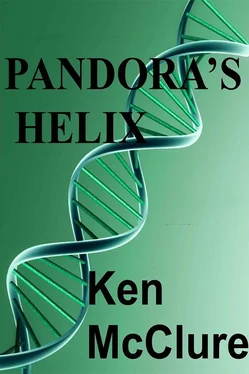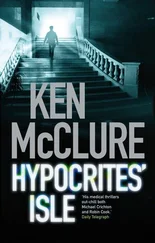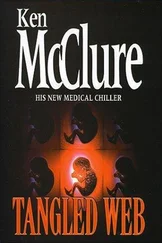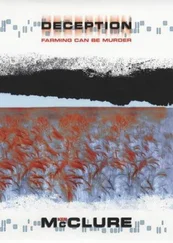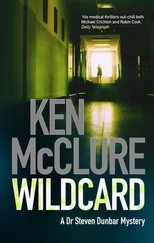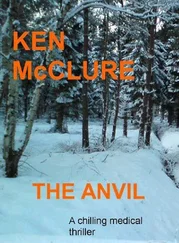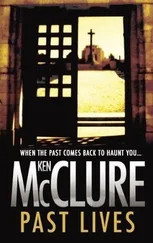Ken McClure - Pandora's Helix
Здесь есть возможность читать онлайн «Ken McClure - Pandora's Helix» весь текст электронной книги совершенно бесплатно (целиком полную версию без сокращений). В некоторых случаях можно слушать аудио, скачать через торрент в формате fb2 и присутствует краткое содержание. Год выпуска: 1997, ISBN: 1997, Издательство: Simon & Schuster, Жанр: thriller_medical, на английском языке. Описание произведения, (предисловие) а так же отзывы посетителей доступны на портале библиотеки ЛибКат.
- Название:Pandora's Helix
- Автор:
- Издательство:Simon & Schuster
- Жанр:
- Год:1997
- ISBN:978-0-684-48163-7
- Рейтинг книги:4 / 5. Голосов: 1
-
Избранное:Добавить в избранное
- Отзывы:
-
Ваша оценка:
- 80
- 1
- 2
- 3
- 4
- 5
Pandora's Helix: краткое содержание, описание и аннотация
Предлагаем к чтению аннотацию, описание, краткое содержание или предисловие (зависит от того, что написал сам автор книги «Pandora's Helix»). Если вы не нашли необходимую информацию о книге — напишите в комментариях, мы постараемся отыскать её.
Pandora's Helix — читать онлайн бесплатно полную книгу (весь текст) целиком
Ниже представлен текст книги, разбитый по страницам. Система сохранения места последней прочитанной страницы, позволяет с удобством читать онлайн бесплатно книгу «Pandora's Helix», без необходимости каждый раз заново искать на чём Вы остановились. Поставьте закладку, и сможете в любой момент перейти на страницу, на которой закончили чтение.
Интервал:
Закладка:
“I just worry about the safety aspects,” confessed Farro-Jones. He turned to his colleagues with a slight grimace. “The patients’ welfare must be our first consideration. After all, as Florence Nightingale once said, ‘The first duty of a hospital is that it cause its patients no harm’.”
There was polite laughter.
“There are no named patients on the application,” said Major Jackson. “You’re asking for open permission?”
“Dr Pereira and I will agree this between us,” said Neef.
“I take it the request for open permission is because the subjects will be terminally ill.”
“Yes sir but I have made a stipulation that no child will be used for the sole purpose of gathering scientific data. Every child given Gene Therapy will be given it with the sole intent of improving his or her condition.”
Jackson nodded and turned to his colleagues and said, “I think I am inclined to agree with Mr Thomas in this instance. I think the time has come.”
Permission to proceed was approved. The committee members rose and David Farro-Jones came over to speak to Pereira and Neef.
“I’m sorry, Max if I appeared a bit sticky there. I just worry about the dangers of these new vectors.”
“You’ve got to call it like you see it David,” replied Pereira.
“No hard feelings, I hope?”
“None. I appreciate your concern but we’re sure that they’re safe and we’ve got the go ahead anyway.”
“Then let me be the first to wish you the best of luck,” said Farro-Jones. “And if you need any help with equipment or lab space just give me a call. Michael will tell you how to get in touch.”
“Of course,” said Neef.
“Thanks a lot, David, I appreciate it,” said Pereira.
“We must have dinner soon, talk about old times, eh?”
“I’d like that.”
“Nice chap,” said Neef as Farro-Jones hurried off.
“Yeah,” replied Pereira. “So when do we start in earnest?”
“How about Monday?”
“That sounds OK. I’ll start moving in stuff at the week-end. I may look in on your unit then if that’s all right with you?”
“Of course. I’ll tell the others to expect you.”
“Maybe I could take a copy of some patient notes before I go, ideally the ones you think might benefit from the therapy.”
“We can do that now if you like. I’ve just got time before I meet with some parents.”
“Bad news?”
“I’m afraid so. Their boy has a brain tumour. It’s inoperable.”
“A bitch,” said Pereira. “Inaccessible?”
“It’s in the cerebellum. I thought it was borderline but our neuro-surgeon gave it the thumbs down.”
“Afraid of litigation, huh?”
“I don’t think that came into it,” said Neef, mildly annoyed at Pereira’s interpretation.
“Woops. Sorry,” said Pereira, sensing that he had offended Neef. “Maybe things are different in England.”
Neef didn’t reply but it was food for thought. Maybe surgeons weren’t as afraid as their American counterparts of an action being raised against them in the courts but things had been heading that way and not just for surgeons. His own insurance premium for that sort of eventuality had risen dramatically over the past few years.
“If you thought the kid’s tumour was borderline, it must have been reasonably accessible?” asked Pereira.
“Yes but my hand wasn’t going to be wielding the knife. Why do you ask?”
“Do you think it could be reached with a needle?”
“I hadn’t thought about that,” said Neef. “You think we could include the boy in the trial?”
“Sounds like he might be a possible candidate to me,” said Pereira.
Neef suddenly felt better. He was always uneasy before an interview with parents when it was bad news he had to impart and this despite the fact that he’d had to do it hundreds of times before. It was an unpleasant, hollow feeling in his stomach. This was compounded today by the fact that he’d had no lunch. Pereira had introduced an unexpectedly welcome ray of hope into the proceedings but he reminded himself, if he felt this much better, how would Thomas Downy’s parents react when he threw them such a lifeline? He would have to be very careful. Raising false hopes would be unforgivable.
Neef and Pereira were going through the patient notes when Lawrence Fielding put his head round the door.
“I managed to catch Lennon at the Public Health Department,” he said. “He was pretty shocked to hear the news about the second case.”
“I’ll bet,” replied Neef. “Did he say if he’d made any progress with the Melanie Simpson case?”
“None at all,” replied Fielding. “But he feels that having a second case might help if he can just find out what the two girls had in common. He was going to speak with Jane Lees’ parents this afternoon and maybe Jane herself later if that’s all right with you?”
“As long as she’s well enough to see him,” said Neef. “I talked to her myself at lunch time but I couldn’t find out anything. She’d never heard of Melanie Simpson.”
“Jesus,” exclaimed Pereira who had been reading through the notes and had come to Jane Lees’ X-rays. “Is this the kid you guys are talking about?”
“Yes, we’ve had two like that in the past week. The girls have obviously been exposed to some powerful carcinogen. Our Public Health people are trying to trace it. I don’t suppose Jane Lees is a possible for Gene Therapy?” Neef asked Pereira.
Pereira shook his head. “No siree,” he said. “Not too much lab work has been done on lung cancer and the fact that we’re looking at multiple tumours would tend to rule it out anyway. Apart from that it looks like time is not on this kid’s side. What a mess.”
Pereira left at five minutes to four and Neef went to his office to prepare himself for the meeting with Thomas Downy’s parents. He put on a clean white coat, straightened his tie and made sure a box of tissues was close to hand on his desk. At precisely four o’clock Ann Miles showed in the Downys. They were a pleasant looking couple and huddled together for comfort as they entered. It was something Neef had seen a lot of. As they sat down they drew their chairs closer together so that they could hold hands while they listened to what Neef had to say.
“I’m afraid I have some bad news for you,” said Neef. He could almost feel the hopes and prayers of the couple evaporate into nothingness. “Our neuro-surgeon, Mr Beavis, examined Thomas this morning and reluctantly concluded that Thomas’ tumour was inoperable.”
“Oh my God,” whispered Mrs Downy. Her husband put his arm round her and manfully kept eye contact with Neef. “I see,” he said. “So there’s nothing can be done for him then?”
“Other than keep him comfortable, I’m afraid not.”
Mrs Downy started to sob and tears started to roll down Mr Downy’s own face although outwardly he strove to remain impassive. Neef felt a lump come to his own throat.
“How long, Doctor?”
“Hard to say, weeks rather than months,” replied Neef. “I’m desperately sorry.”
“Thank you, Doctor,” said Mr Downy.
Neef pushed the box of tissues across the desk.
“That is the reality of the situation, I’m afraid,” said Neef, “And I’m sorry I’ve had to be so brutally frank but its important that you understand this before I say what I’m about to.”
“What’s that, Doctor?”
“This unit is about to participate in trials of a new and largely untested cancer treatment known as Gene Therapy. It’s experimental and may even be dangerous but, with your permission, I would like to include Thomas in these trials. I must stress that I cannot offer you any realistic hope of a cure for Thomas, we have no way of knowing what to expect but, if you agree, we can at least give it a try.”
Читать дальшеИнтервал:
Закладка:
Похожие книги на «Pandora's Helix»
Представляем Вашему вниманию похожие книги на «Pandora's Helix» списком для выбора. Мы отобрали схожую по названию и смыслу литературу в надежде предоставить читателям больше вариантов отыскать новые, интересные, ещё непрочитанные произведения.
Обсуждение, отзывы о книге «Pandora's Helix» и просто собственные мнения читателей. Оставьте ваши комментарии, напишите, что Вы думаете о произведении, его смысле или главных героях. Укажите что конкретно понравилось, а что нет, и почему Вы так считаете.
